On the scope of the SHAREe project, the Seminar on Sustainable Hydropower funded by the EEA Grants Portugal took place at Instituto Superior Técnico las April 2nd. The event featured the participation of the colleagues from Norway Tor Haakon Bakken, Lennart Schönfelder, Christianne Solvag, Hanne Bjørnås Krogstie and Jo Halleraker (remotely). The Seminar brought together professionals from academia, hydropower, environment and water management fields to explore best practices, innovative techniques, and global ESG strategies in the sector. The participants learned about the SHAREe project, Sustainable Hydropower to Alleviate and Reduce Environmental externalities. The face-to-face format also allowed also for valuable networking and collaboration opportunities.
Some key takeaways from the Seminar, included:
✅ Norway and Portugal can benefit from past experiences in sustainable hydropower practices. Climate change comes to reinforce the need of shared experiences and knowledge exchange
✅ We need improved cost-benefit analysis in decision-making processes
✅ The transition to renewable energy requires a thorough understanding of environmental impacts to safeguard biodiversity
✅ Environmental impacts are wide and touch basis in the rivers downstream as well as the water reservoirs
✅ Best practices are feasible and needed to minimize environmental impacts
✅ Research institutes are committed to develop innovative technologies that can improve mitigation measures and monitoring
✅ Digitalization is at the forefront of environmental monitoring practices
✅ Innovative techniques to monitor and mitigate environmental impacts are essential for sustainable hydropower development
✅ GGE in northern Europe tend to be minimal
✅ Adding power to non-powered dams can be a critical step towards ensuring a renewable future and addressing climate challenges
✅ Global ESG strategies are being applied to the hydropower sector to ensure responsible and sustainable practices (see the Hydropower Sustainability Alliance)
✅ Policies does help to achieve better standards in the hydropower sector
✅ Collaborative effort and multidisciplinary approach are needed to ensure the sustainable development of the hydropower sector.
The discussions were not only informative but also inspiring, as they showcased the potential for hydropower to be a sustainable and responsible energy source.
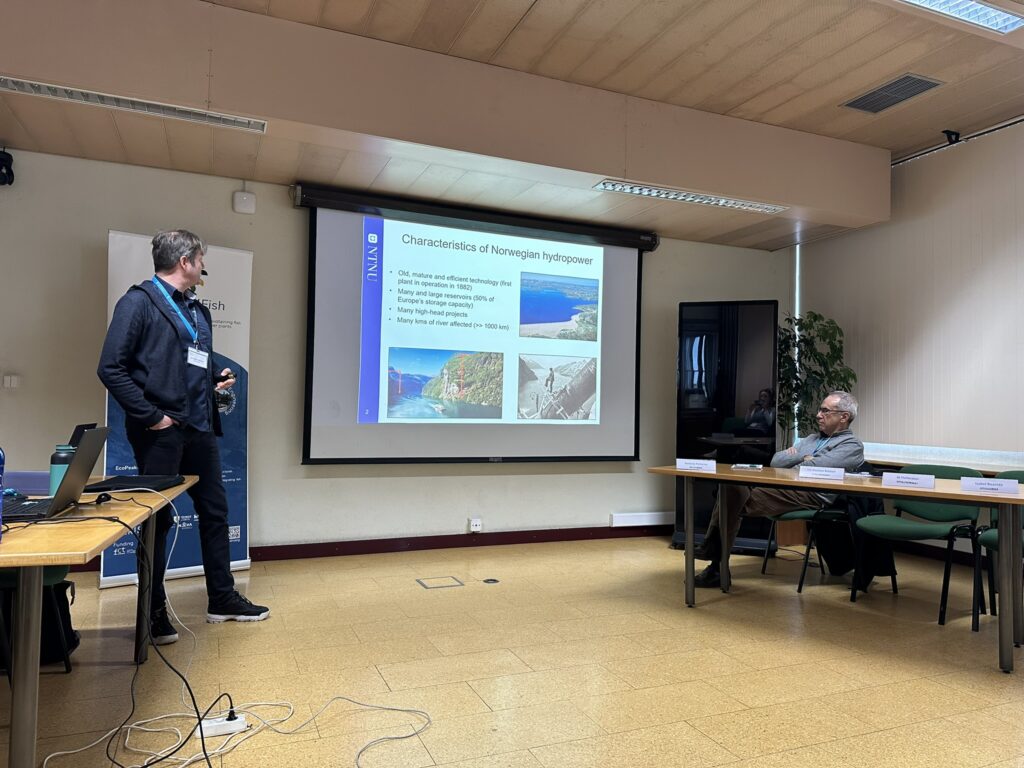
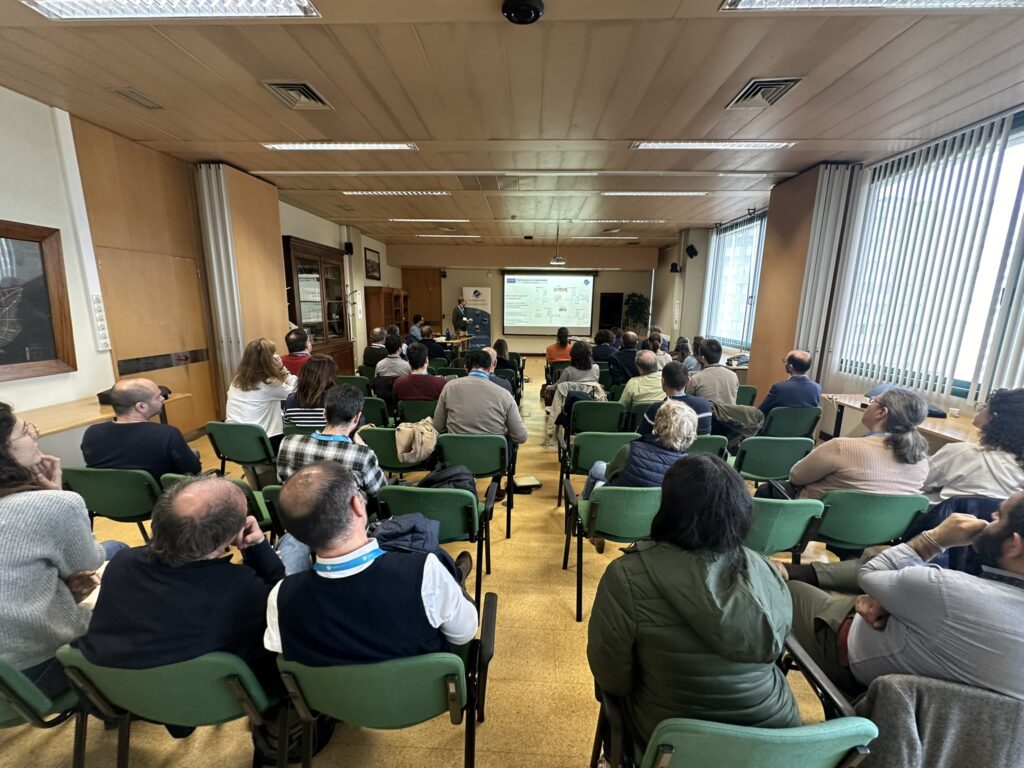
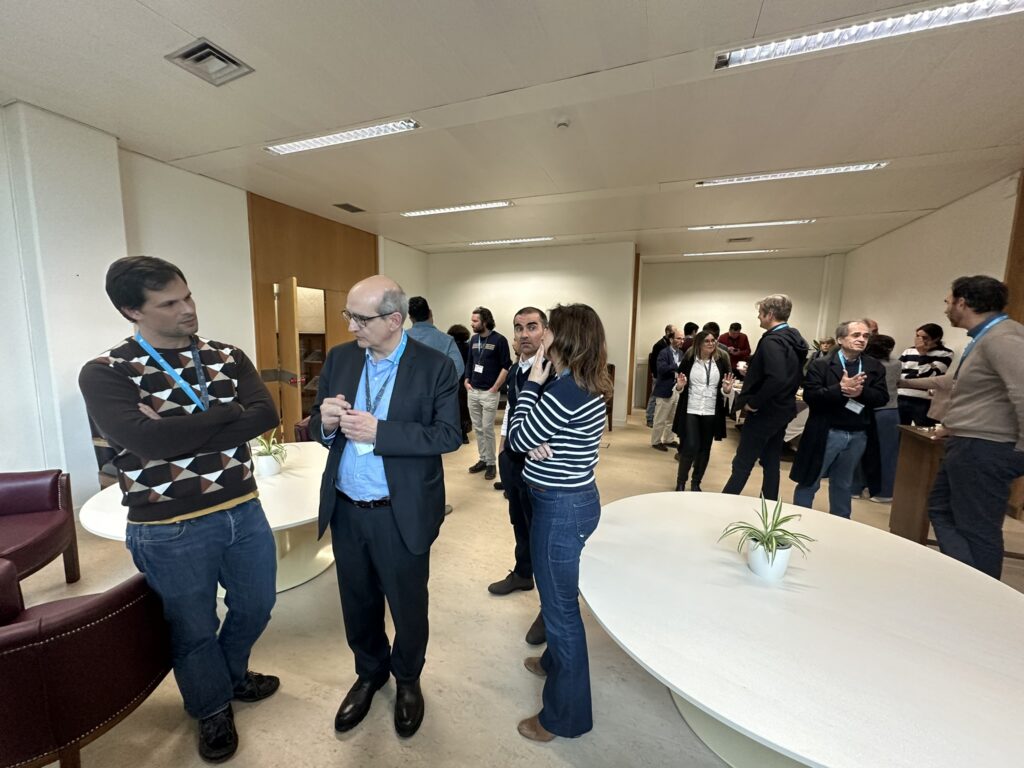
Pictures from the Seminar on Sustainable Hydropower
On the day after, together with the Norwegian colleagues of SHAREe project we had the opportunity to explore several interesting test cases of best practices for improving fish migration and mitigating the impacts of hydropower.
Our day started with a beautiful Portuguese weather while visiting the mitigation measures along the Mondego River to improve fish migration. We visited the fish ladder at the Coimbra weir-bridge and the restoration of the Palheiros weir with a rock-ramp for migratory fish. APA – Agência Portuguesa do Ambiente provided an informative and insightful guided tour.
Later in the afternoon, our focus shifted to a more technical aspect centered around hydropower. João Pádua from EDP led us through a detailed exploration of Castelo de Bode Hydropower Plant, showcasing EDP capacity in implementing the e-flows releasing device to cope with the WFD. As the day drew to a close, we visited the Belver Hydropower dam, also from EDP to see the fish lock in operation.
Our Norwegian colleagues took back home valuable insights on mitigating and restoring habitats in hydropower-regulated rivers, and they will probable find themselves nostalgic about the sunny temperatures of Portugal.
Collaborative efforts like these play a crucial role in advancing our understanding and implementation of sustainable practices. Thank you to EEA Grants Portugal for helping us to thrive this fruitful collaborations!
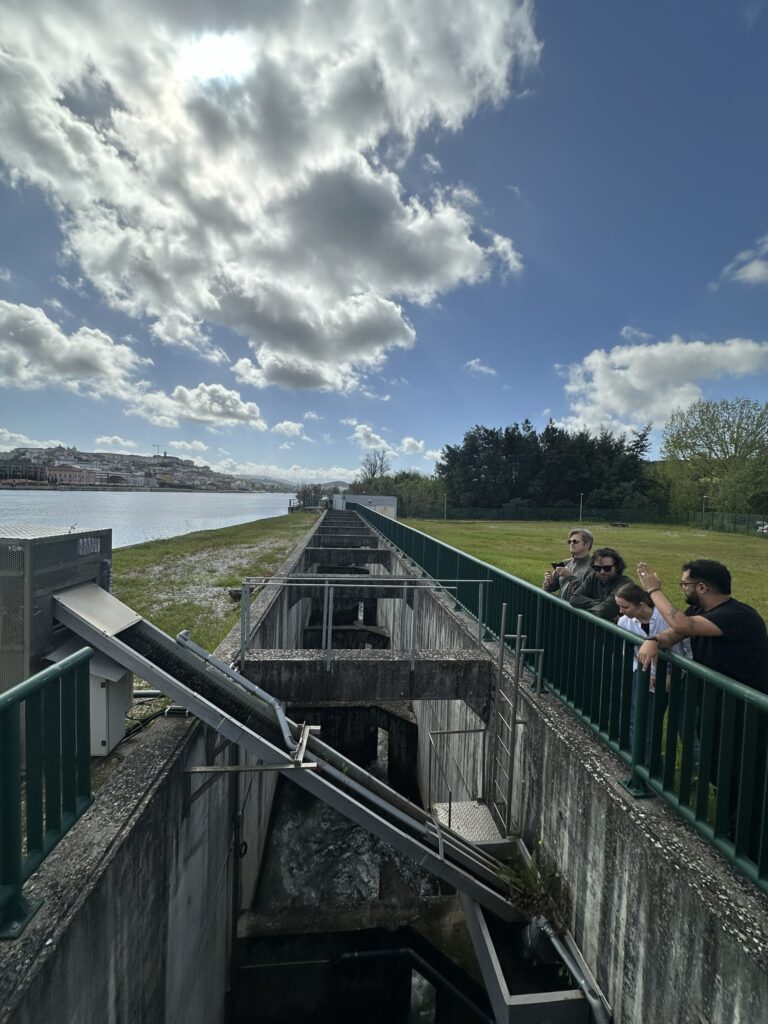
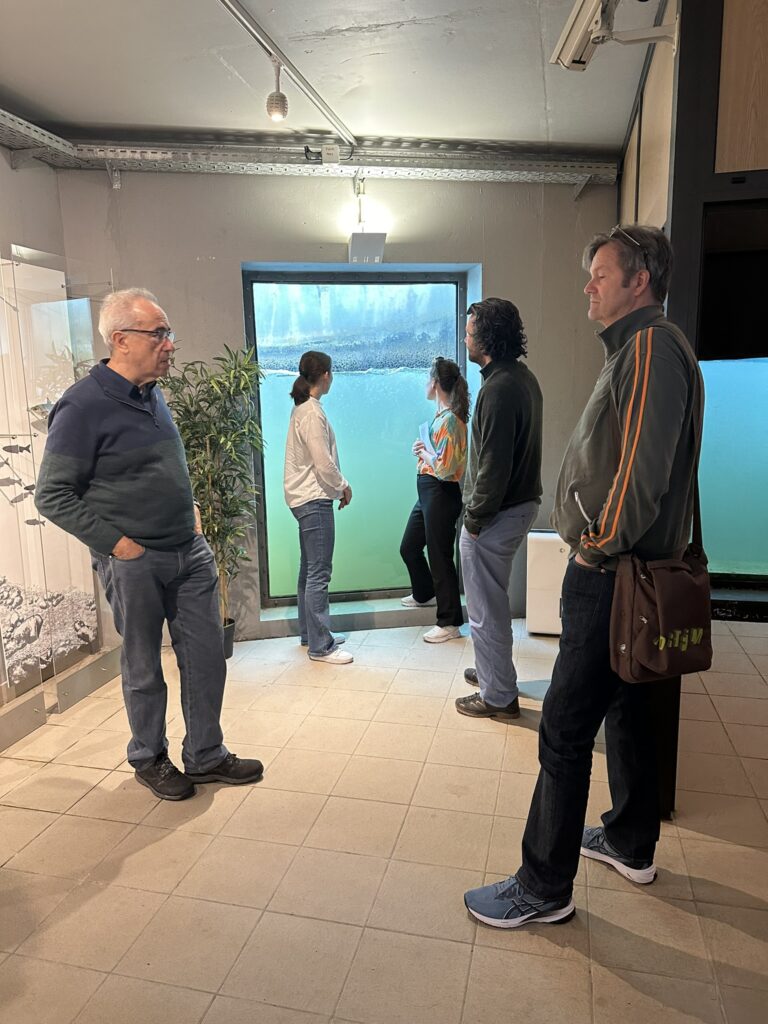
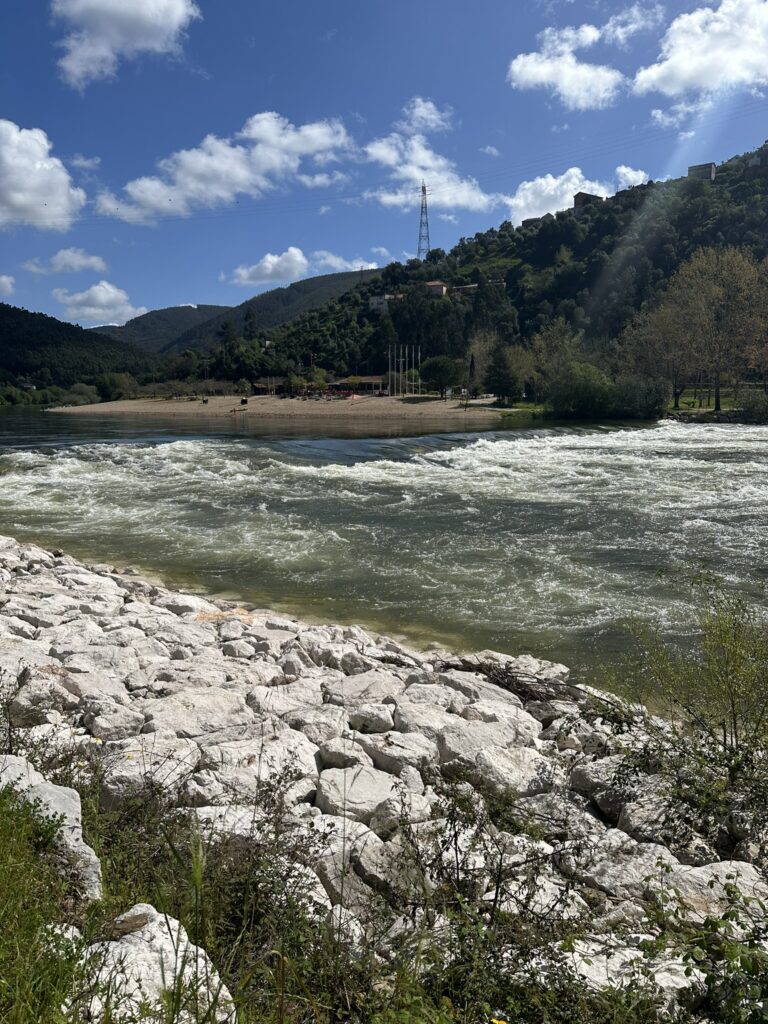
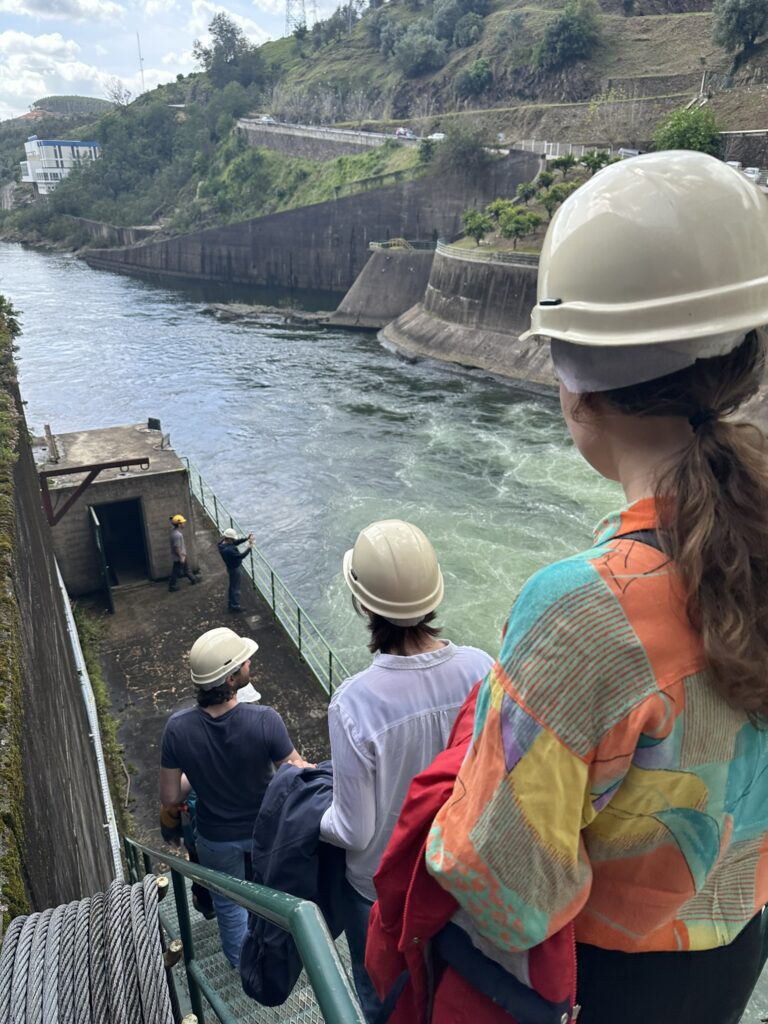



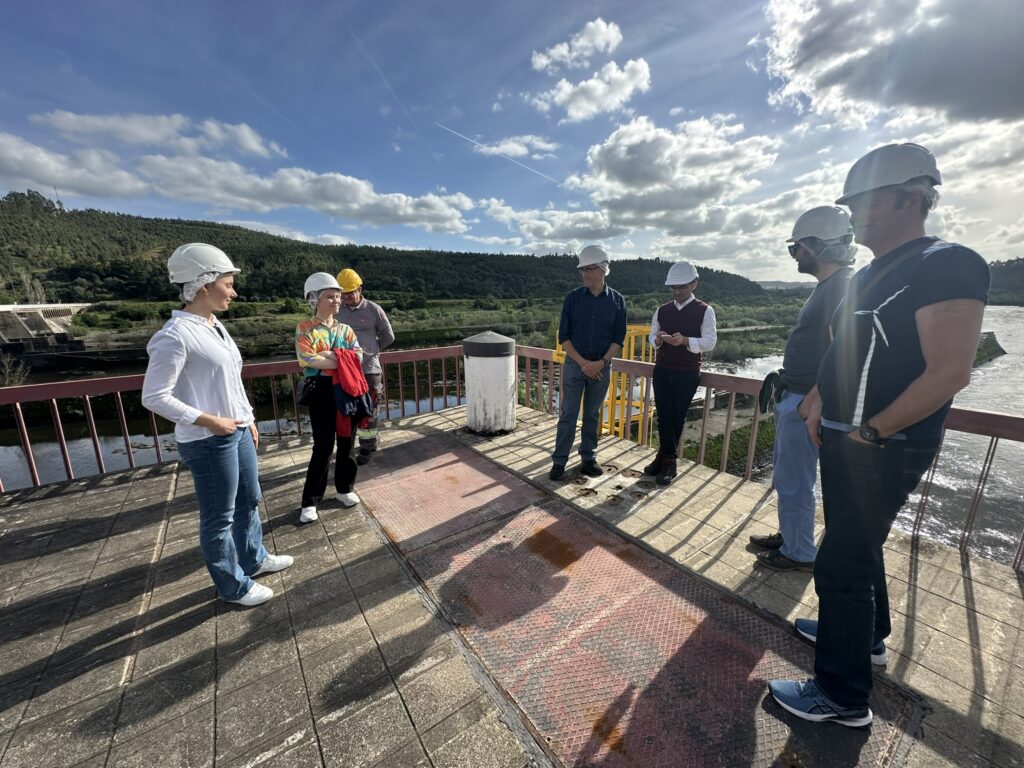
Pictures taken during the visit to Coimbra Açude-ponte fish-passage and Castelo de Bode and Belver Hydropower Plants